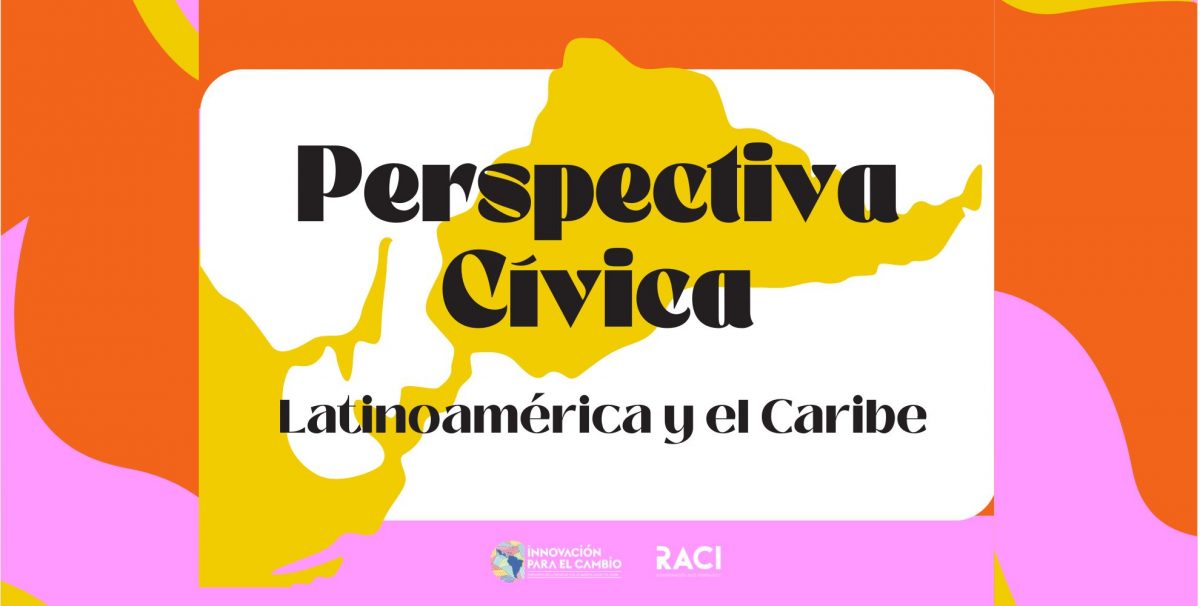Fundación Avina interviewed us and wrote an article about Perspectiva Cívica on its website. It was written by Florencia Tuchin and we share it below.
Civic Perspective is a project initiated by RACI, in 2018, together with Innovation for Change (I4C) Latin America and the Caribbean, which seeks to know how organizations are doing in terms of enabling space. In this framework, a survey was developed that seeks to take the pulse of social organizations, that is, to identify the conditions in which civil society works and develops.
In order to carry out this project, a qualitative-quantitative methodology was used, based on a survey of leaders and work teams of social organizations, who report on the main strengths, weaknesses and needs.
Regarding hired and volunteer personnel, one of the results of this research is that only one out of every eight people working in the social sector receives any remuneration for the work they do; 36% of the people who participated in the survey work on a volunteer basis. As for staff training, 88% of the people working in social organizations do not have tertiary or university education. In other words, the less privileged people sustain and drive the social sector in the region.
“If we take into account the data provided by ECLAC, Latin America and the Caribbean was positioned in 2020 as one of the most unequal and inequitable regions and the health crisis initiated by the Covid-19 pandemic deepened these inequalities, especially affecting highly vulnerable populations. In this context, transversal at the regional level, it was largely the Civil Society organizations who had to respond to many of the demands of the communities. However, the support work carried out by these key actors remains largely invisible and undervalued”, emphasizes RACI.
Another point highlighted by RACI when asked about the greatest challenges facing CSOs is that “in several countries in the region there is a gradual decrease in the enabling space for organizations, given the growing restrictions imposed by some governments. There are other aspects that also constitute major challenges, such as marginalization, exclusion, the strong informality of practices in the sector, which in turn translates into a low level of institutionalization, and the instability that historically characterizes Latin American countries in the political, social and economic spheres”.
“Another challenge is that funds are often scarce and are not enough to respond to the prevailing needs of the region’s societies and at the same time they tend to support mostly short-term projects, highlighting that the need for survival of organizations often goes to the detriment of the planning of their mission and vision, which must find ways to continue operating in a region in need of medium and long-term planning to help achieve structural changes,” they add.
Among the sector’s strengths, highlighted by RACI based on the study, were “creativity, innovation and the great capacity to build alliances and formal and informal links. Likewise, it is worth highlighting a considerable flexibility and dynamism that translate into the possibility of adapting, improvising and providing a quick response to the needs of the situation, which were key tools in the crisis initiated by the Covid-19 pandemic”.
RACI added: “At the same time, other important points emerged from the brainstorming sessions. Firstly, the relevance of the new forms of activism – and cyberactivism – which are much more dispersed in their conformation than traditional organizations – with which it was hypothesized that they have little linkage – but simultaneously boasting a great capacity for advocacy, a combination that raises some novel elements”.
“In turn, we documented the extensive knowledge accumulated by CSOs about the situation of communities and their capillarity on the ground. The challenge remains for this knowledge to really be heard, and to be put into play for the benefit of the underprivileged people in our system. In an ideal world, the best thing would be for those who govern us to recognize the leading role of CSOs in improving the way of life in Latin America and the Caribbean and thus know that CSOs are an interested – and essential – part of the public sector, integrating the Social Sector in decision-making processes,” RACI explains.

